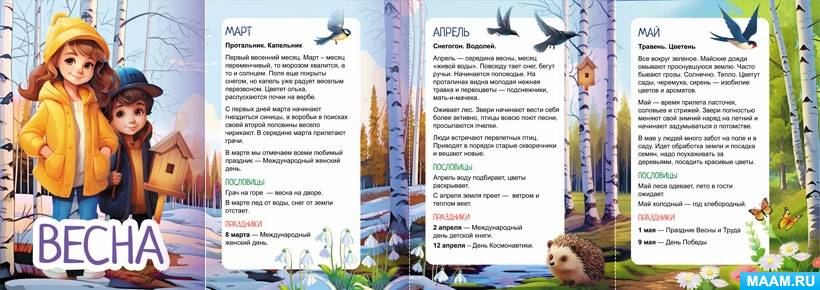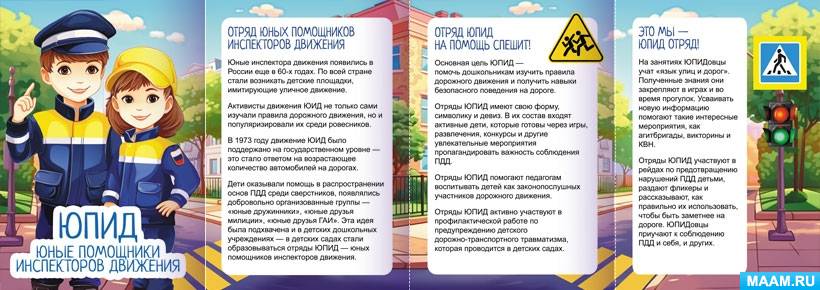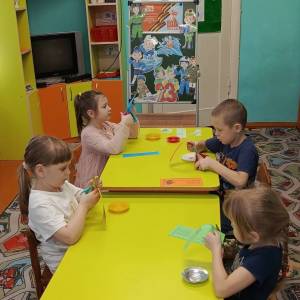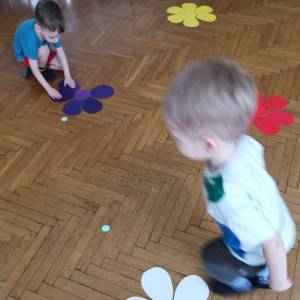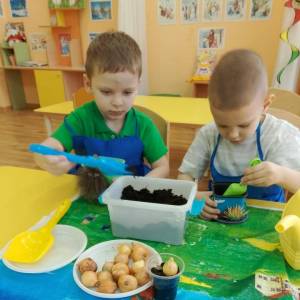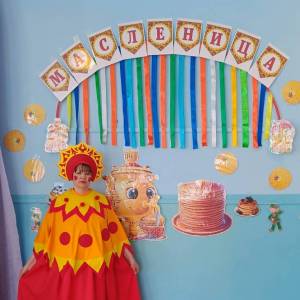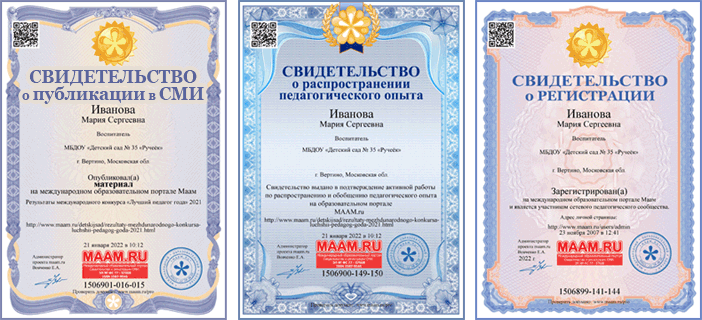![]() Жанна Станиславовна Моргоева
Жанна Станиславовна Моргоева
Конспект открытого урока по английскому языку в 6 классе на тему «Different Ways of Speaking about the Future»
▼ Скачать + Заказать документы
Цели урока :
1. Расширение страноведческих и лингвистических знаний учащихся по теме США.
2. Совершенствование умений и навыков практического владения английским языком по теме.
3. Введение и закрепление грамматического материала «Различные способы выражения будущего времени».
Задачи урока :
Воспитательные: укрепление интереса к предмету; воспитание уважительного отношения к зарубежной культуре; воспитание интереса к учению и формированию познавательной активности.
Темочки:
- Английский язык в школе
- Английский язык. 5-9 класс
- Иностранный язык в школе
- Средняя школа, 6 класс
- Средняя школа. 5-9 классы
- Школа. Материалы для школьных педагогов
- Темочки
- Конкурс для воспитателей и педагогов «Лучший конспект занятия (НОД)» ноябрь 2023
Развивающие: расширение общего кругозора учащихся; развитие творческой деятельности, памяти, догадки, воображения, способности логически излагать; развитие способности работать в группах и самостоятельно.
Образовательные: систематизация, обобщение и закрепление пройденного материала; введение и закрепление нового грамматического материала; тренировка в говорении, расширение словарного запаса; совершенствование техники чтения.
Тип урока : комбинированный
Межпредметные связи: география, история.
Оборудование:
1. Физическая карта США.
2. Компьютер.
3. Раздаточный материал.
4. Оформление доски.
5. Мультимедийный проектор.
6. Презентация по ходу урока ( в презентации рассматриваются четыре способа выражения будущего времени:
1. The Present progressive Tense.
2. Оборот to be going to.
3. The Future Simple Tense.
4. The Present Simple.)
7. УМК “Rainbow English 6’’ О. В. Афанасьева, И. В. Михеева, К. М. Баранова
Этапы урока :
1. Организационный.
2. Фонетическая зарядка.
3. Проверка домашнего задания.
4. Систематизация изученного лексического материала по теме США.
5. Введение грамматического материала по теме «Способы выражения будущего».
6. Физкультминутка.
7. Закрепление грамматического материала.
8. Информация о домашнем задании.
9. Итоги уроки. Заключительная часть.
Ход урока:
1 этап. Приветствие. Создание языковой среды.
Good morning, my friends. Glad to see you. Sit down, please and be ready for the lesson. What date is it today? What day of the week is it today? What season is it now? What s the weather like today? Who is absent today?
2 этап. Фонетическая зарядка. Фонетическая отработка лексики урока.
I give you some cards. Look through them. I m going to pronounce the words. Listen to me and repeat them after me, mind your pronounciation.
(The USA, Christofer Columbus, settlements, Central America, ”The Mayflower”, Plimouth, Thanksgiving Day, independent, independence ,George Washington, thirteen, fifty, the Stars and Stripes, the Eagle, official, national, symbol, nation, turkey, discover, skyscrapers, The Statue of Liberty ,The Niagara Falls)
3 этап. Проверка домашнего задания.
For today you had to do ex 5, p 37. Say when Rachel will do it. Use when, as soon as, after, before. Remember subordinate clause of time.
4 этап. Систематизация изученного лексического материала по теме США.
We already know some facts about the United States of America and New York. Let s check how much do you know about the USA. Remember certain things about this great country.
Answer my questions :
1. Where is the USA situated?
2. What do you know about its area?
3. What is the population of the country?
4. What is the official language?
5. Name main cities of the country.
6. Who is the head of the country?
Tell me the right answer :
1.Christopher Columbus discovered America in…
a) 1402 c) 1492
b) 1482 d) 1432
2.The American flag is often called…
a) Union Jack c) The Stars and Stripes
b) The Red Dragon d) The White Eagle
3.There are… stripes on the American flag.
a) 7 c) 50
b) 6 d) 13
4.The capital of the USA is…
a) Washington, D.C. c) New York
b) London d) Los Angeles
5 этап. Введение грамматического материала по теме «Способы выражения будущего».
The next part of our lesson is connected with the new theme – «Different Ways of Speaking about the Future». Listen to me attentively :
В повседневной речи мы используем будущее время очень часто. Наши планы, мечты, намерения, цели, прогнозы – всё это о будущем. Не всегда, говоря о будущем, мы используем грамматическую форму будущего времени. Это справедливо как для русского, так и для английского языка. Сегодня мы познакомимся с 4 способами выражения будущего. Итак, в английском языке для выражения будущих действий можно использовать:
I. Present Continuous
если мы говорим о личных планах на будущее
- We are going to the country on the weekend.
- My sister is coming to see us in the evening.
II.Present Simple
если мы говорим о запланированном будущем действии, которое идет по плану, программе, расписанию, но НЕ личные планы
- I’m on duty the next week.
- The match starts at 7 o’clock tomorrow.
- The shop opens at 9 a.m.
III. Конструкция “to be going to”
если нам нужно сказать о том, что мы собираемся что-либо сделать в ближайшем будущем
- Look at these clouds. It’s going to rain in a minute.
- Look! The child is going to fall
IV. Future Simple
предсказание о будущем, основанное на чем-то, указывающем на то, что это событие случится, факты и утверждение о будущем, решение, принятое в момент говорения, обещания и предложения
- Look! It will rain. The sky is overcast.
- She will be 20 next month.
- O.K. I think, I will help you.
- Of course, I will come.
- I’ll post the letters for you.
6 этап. Физкультминутка.
Let s relax a bit. I don’t want you to be tired.
7 этап. Закрепление грамматического материала.
If everything is clear, let s practice this new rule.
Задания:
Exercise 1. Put the verbs into the correct form (will, going to, simple present or present progressive).
1. I love London. I (probably / go) there next year.
2. Our train (leave) at 4:47.
3. What (wear / you) at the party tonight?
4. I haven’t made up my mind yet. But I think I (find) something nice in my mum’s wardrobe.
5. This is my last day here. I (go) back to England tomorrow.
6. Hurry up! The conference (begin) in 20 minutes.
7. My horoscope says that I (meet) an old friend this week.
8. Look at these big black clouds! It (rain).
9. Here is the weather forecast. Tomorrow (be) dry and sunny.
10. What does a blonde say when she sees a banana skin lying just a few metres in front of her? - Oh dear! I (slip)!
Exercise 2. Use the verbs in brackets in the correct future tenses.
1) The train at 11:45. (to leave)
2) We dinner at a nice restaurant on Saturday. (to have)
3) It in the mountains tomorrow evening. (to snow)
4) On Sunday at 8 o’clock I my friend. (to meet)
5) They to London on Friday evening. (to fly)
6) Wait! I you to the station. (to drive)
7) The English lesson at 8:45. (to start)
8) I my sister in April. (to see)
9) Look at the clouds - it in a few minutes. (to rain)
10) Listen! There’s someone at the door. I the door for you. (to open)
Tests :
Test I. Complete the sentences expressing the future.
1. I don’t feel very well I think I (faint).
2. She (meet) them tomorrow morning.
3. When I see him I (give) him your message.
4. What (do) this evening?
5. As soon as I hear something on the radio, I (tell) you about it.
6. I (try) to sew your worn-out trousers.
7. I (bring) your notebook to the headmaster tomorrow
Test II. Put in ‘will’ or ‘be going to’ :
1. A : We don’t have any bread.
B : I know. I ___ get some from the shop.
2. A : We don’t have any bread.
B : Really? I ___ get some from the shop then.
3. A : Why do you need to borrow my suitcase?
B : I ___ visit my mother in Scotland next month.
4. A : I’m really cold.
B : I ___ turn the heating on.
5. A : Are you going to John’s party tonight?
B : Yes. Are you going too? I ___ give you a lift.
6. A : What are your plans after you leave university?
B : I ___ work in a hospital in Africa. I leave on the 28th.
7. (The phone rings)
A : I ___ get it!
8. A : Are you ready to order?
B : I can’t decide … Okay, I ___ have the steak, please.
9. A : Are you busy tonight? Would you like to have coffee?
B : Sorry. I ___ go to the library. I’ve been planning to study
all day.
10. A : Why are you carrying a hammer?
B : I ___ put up some pictures.
8 этап. Информация о домашнем задании.
For the next lesson you will have to do Ex 6, 8 p 38
9 этап. Итоги урока. Заключительная часть.
Well done, pupils. Do you like the lesson? Was the lesson difficult? I liked your work. You were active enough. Your marks are….
The lesson is over. You are free. See you soon.

 Жанна Станиславовна Моргоева | Все публикации
Жанна Станиславовна Моргоева | Все публикации

